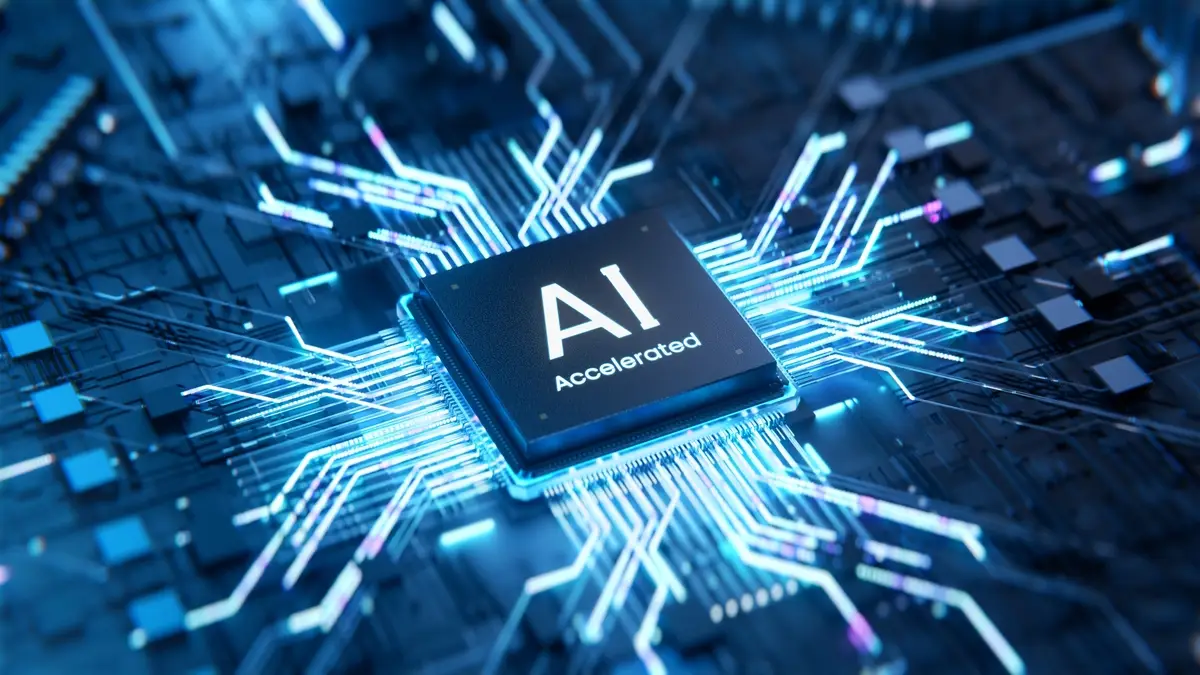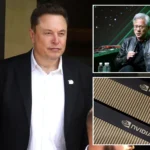President Donald Trump has pledged to bring chip manufacturing back to the U.S., but his tariff threats and criticism of the CHIPS and Science Act could slow down America’s AI and semiconductor industry—potentially backfiring on U.S. economic leadership.
The Trump administration is considering new tariffs of up to 100% on imported semiconductors, including those from Taiwan Semiconductor Manufacturing Co. (TSMC), the world’s leading advanced chip producer. Trump has also signaled opposition to federal subsidies for chip manufacturers, despite the Biden-era CHIPS Act fueling major U.S. investments in semiconductor production.
Experts warn these moves could disrupt AI growth, increase consumer prices, and make it harder for the U.S. to compete globally.
How Trump’s Policies Could Hurt the Semiconductor & AI Industry
🔹 Tariffs on Chips Could Increase Consumer Prices
- Chips power everything from smartphones to AI models to smart fridges—higher tariffs mean higher costs for manufacturers and consumers.
- Even Nvidia ($NVDA), the AI chip leader, could face pressure despite its high margins.
🔹 CHIPS Act Rollback Threatens U.S. Manufacturing Plans
- The CHIPS and Science Act has already allocated $30 billion across 23 projects in 15 states, aiming to make the U.S. a leader in advanced semiconductor production.
- Without this support, companies may delay or cancel U.S. expansion plans, hurting the goal of reducing reliance on Asian suppliers.
🔹 U.S. Could Fall Behind in AI Race
- AI depends on high-powered chips, and if the U.S. limits imports while also cutting domestic incentives, the industry could face a double hit.
- Other countries could capitalize on U.S. policy uncertainty by expanding their own semiconductor subsidies.
Who’s Affected?
📉 Chipmakers:
- Nvidia ($NVDA), AMD ($AMD), Intel ($INTC), and Qualcomm ($QCOM) all rely on Taiwan and South Korea for advanced chips. Tariffs would increase costs and disrupt supply chains.
- TSMC ($TSM) is directly in the crosshairs—the company held board meetings in the U.S. last week and sent officials to Washington to negotiate tariff exemptions.
📉 AI & Tech Companies:
- Google ($GOOGL), Microsoft ($MSFT), Meta ($META), and Amazon ($AMZN) are all scaling AI infrastructure—tariff-driven higher chip costs could slow expansion.
📉 U.S. Consumers & Auto Industry:
- Cars, gaming consoles, laptops, and even home appliances rely on semiconductors—tariffs could push prices higher for everyday goods.
Could Tariffs Backfire?
✅ Bullish Case:
- Tariffs could force chipmakers to invest more in U.S. factories, helping achieve long-term supply chain security.
- If companies absorb the costs instead of passing them to consumers, market impact could be limited.
❌ Bearish Risks:
- Higher prices on chips = higher costs for AI innovation, smartphones, and auto manufacturing.
- U.S. loses competitive edge if companies delay or move investments elsewhere.
- Tariffs create uncertainty, making it harder for businesses to plan long-term.
With Trump’s policies creating uncertainty, the semiconductor industry and AI sector are in a wait-and-see mode—but the risks of higher costs and slower growth are real.
The original history is here.
Related:
Another CEO is speaking out against naked short selling
Key Events to Watch in This Week & Their Market Impact
Earnings Calendar for This Week: Stocks to Watch and Forecast
Trump’s Auto Tariffs: Will Auto Stocks Crash or Rally?
Car Tariffs May Start on April 2, What It Means for Stock Market
Trump’s Auto Tariffs: What It Means for Tesla Stock
The stock market just won’t crack. Bulls say it’s time for a breakout to new highs
Schwab reports GME stock price above $40,000 in latest glitch: Naked short-selling manipulation?
Javier Milei just DESTROYED market: Are meme coins officially DEAD?










